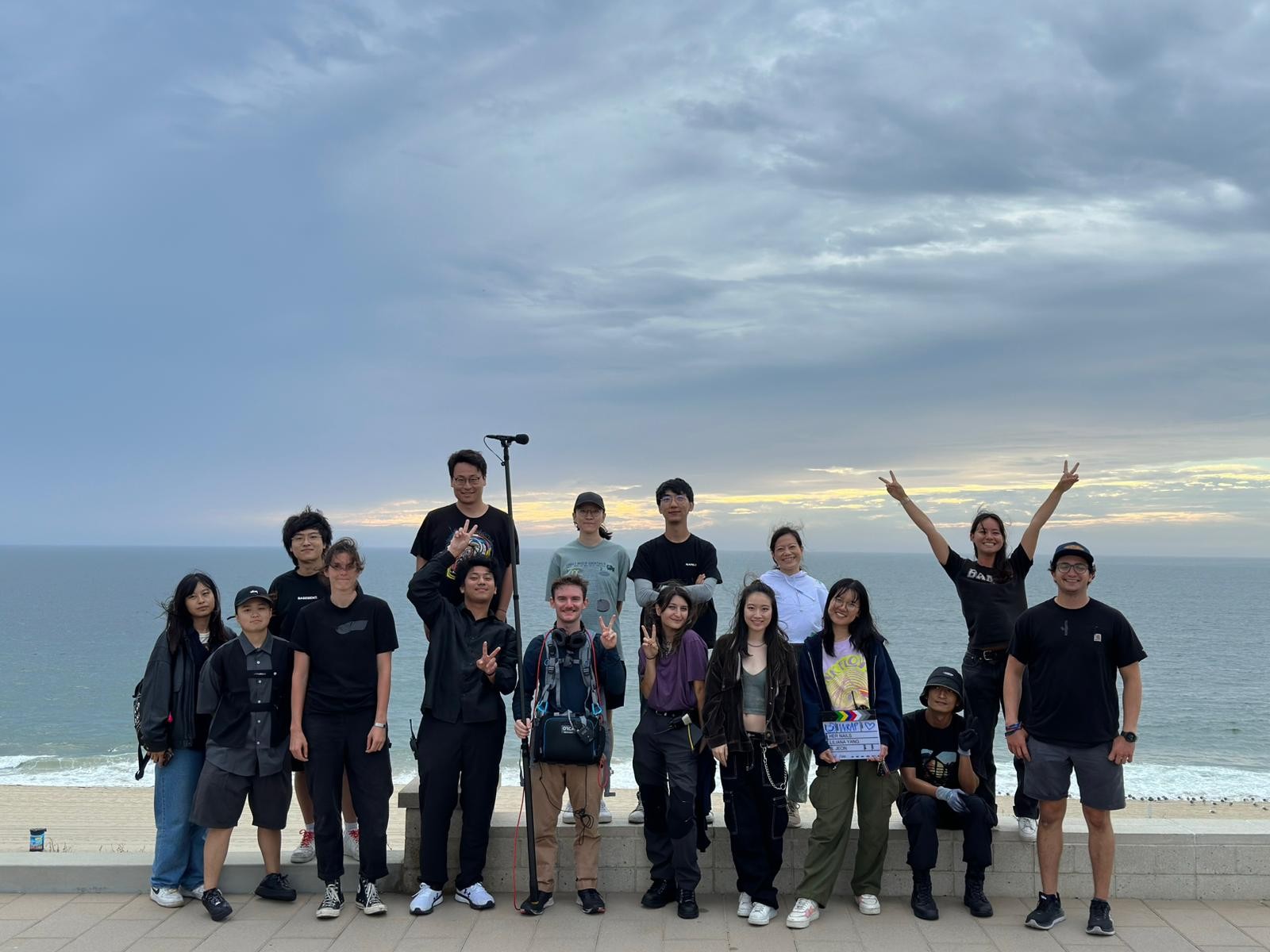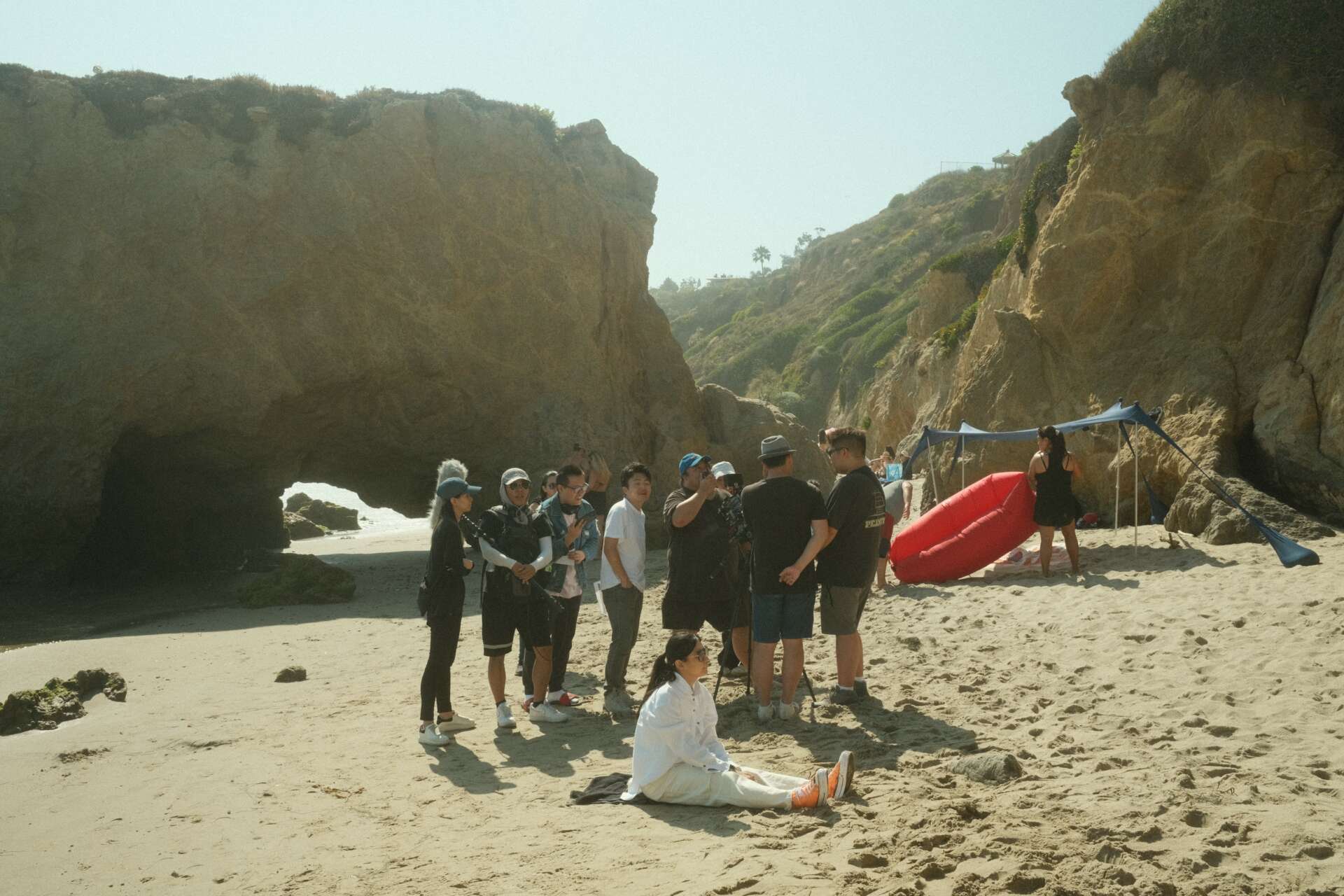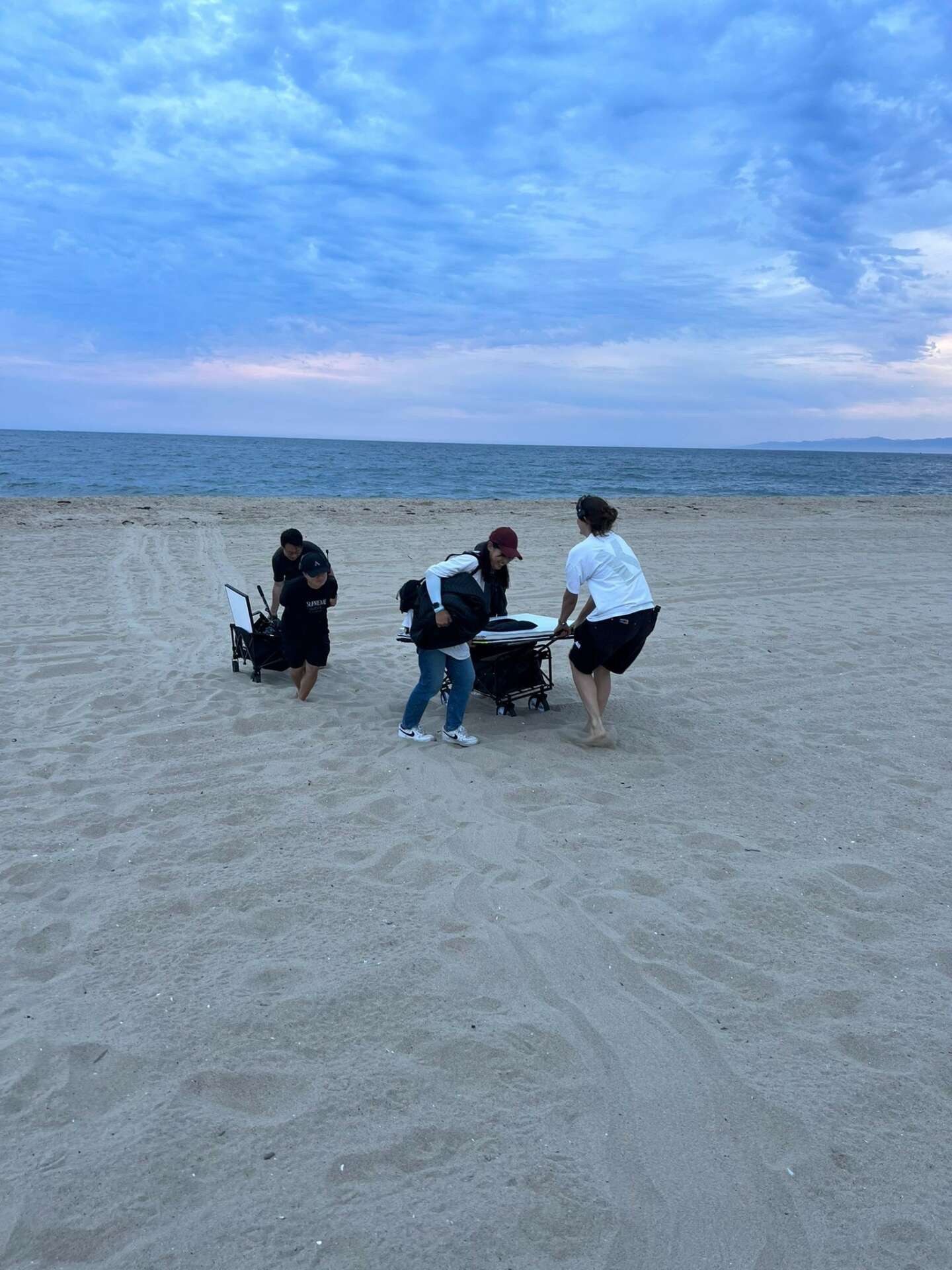We recently connected with Zitian Zhang and have shared our conversation below.
Zitian, thanks for joining us, excited to have you contributing your stories and insights. Let’s jump back to the first dollar you earned as a creative? What can you share with us about how it happened?
So, the first penny I made in the creative industry was in my sophomore year. At that time, a friend of mine was urgently looking for someone who could jump into creating some mood boards and storyboards overnight for an advertising campaign for a TV show. My friend approached me and asked if I could do it. After thinking for a moment, I agreed, but I didn’t have a digital tablet with me, not to mention that staying in a studio overnight by myself was a little bit worrying, too. He assured me that it was not a problem, as their studio had everything. So there I was, on a cold winter night in Beijing, pedaling my way to the studio. After briefing me on the requirements, they emphasized that the work had to be completed by dawn. As they left to lock up the studio, I was left alone, starting to work on the illustrations one by one. I still remember that their digital tablet was difficult to use, and I couldn’t access the restroom in the hallway as I was locked inside the studio, so I dared not to drink any water at all.
Watching the winter sun slowly rise, the studio’s door opened, and I handed over the completed files to them. Since that time, I’ve always remembered that the pace and style of work in this industry are always rushed, the process is painful and draining. However, the delayed satisfaction after the work is conceived is just like the slow rise of the sun on that winter morning. Now, I should say I’ve really gotten used to it and enjoyed it a lot, as life in other industries cannot be as interesting as in the creative one.

Awesome – so before we get into the rest of our questions, can you briefly introduce yourself to our readers.
I am a bilingual filmmaker and have accumulated production experience in short films, commercials, short web series, and TV series in both China and the United States. Since starting based in Los Angeles three years ago, I have primarily been involved in film production as a producer. My main responsibilities include overseeing script development, building up teams, budgeting and scheduling, finding locations and talent, and ensuring close and smooth collaboration among all departments to perform a safe and timely shoot, as well as involvement in post-production.
Those unfamiliar with the film and television industry, even my family, may ask me what exactly a producer does. If I were to summarize it in a simple sentence, I would say: If a film is a project, then a producer is a project manager contributing all the invisible efforts that cannot be captured on the screen. As a producer, I am that type who often anticipates the worst-case scenarios and plans accordingly. I anticipate various possible emergencies and openly discuss with the team during pre-production meetings. Although sometimes I hesitate, fearing that bringing up difficulties in advance may discourage the team, when each project is successfully completed, not over the budget, and we get the most materials we need according to the plan without any surprises, I know that my concerns beforehand were necessary.
Apart from producing, I also serve as an assistant director on set and work on creating my own scripts. Currently I am writing a script about a female teacher is reported by her favorite student who shares the similar childhood trauma with her. Hopefully one day I can bring my creative ideas to life.

What do you think is the goal or mission that drives your creative journey?
Certainly. Regardless of how my role may shift within the industry, whether as a director, producer, or screenwriter, my ultimate goal is always to showcase the lives and experiences of ordinary people. I aspire to render real-life details and genuine emotions as much as possible. Throughout my career, social events have consistently served as my inspiration and creative foundation. I believe their inherent dramatic nature and emotional intensity far surpass purely scripted and fictional characters. Moreover, having witnessed and worked in the Chinese TV industry, which gradually detached itself from the lives of normal people, where each character exists in an elevated and unattainable environment, has only strengthened my conviction.
I am also immensely grateful for the continuous updates and widespread accessibility of short videos and related technology. It allows more people to express their ideas directly and share them with the world. While industry professionals may worry about the rise of short videos impacting traditional filmmaking, I believe that as we become more exposed to the lives of diverse communities, our creative inspiration will break free from local constraints. The world will become more interconnected, and our cultures can engage in richer exchanges.

What can society do to ensure an environment that’s helpful to artists and creatives?
In my view, the beginning of getting into this industry is challenging. For someone who wishes to enter the creative industry but without any experience or network, or for newcomers trying to establish themselves, there, more opportunities, guidance, and exposure is needed. The industry’s invisible barriers are so high, and the portals are not so established, which can result in many talented individuals being left outside the door because they don’t know how to get started. It’s hard to imagine the difficulty someone would face entering the industry if they weren’t a film and television student or didn’t know anyone engaged in film and television production around them.
I think some accessible pitch competitions or short film festivals should receive more support and attention. In addition, for many individuals who are financially difficult to shoot high-quality narrative short films, they may use minimal costs and simple equipment to create YouTube or TikTok short films instead. It seems an alternative, however, even if they accumulate popularity, they are still most likely defined by the traditional film and television industry as someones in “another track”, making it challenging to truly pivot to the realm of feature/TV.
Therefore, I believe the fundamental key to truly improving the industry ecosystem is to provide newcomers with more opportunities.
Contact Info:
- Instagram: @zorazhangatwork
- Linkedin: https://www.linkedin.com/in/zitian-zhang-750b4925a/
Image Credits
Steven Zhang, Yasuko Yui, Austin Chen, Tu Do.


